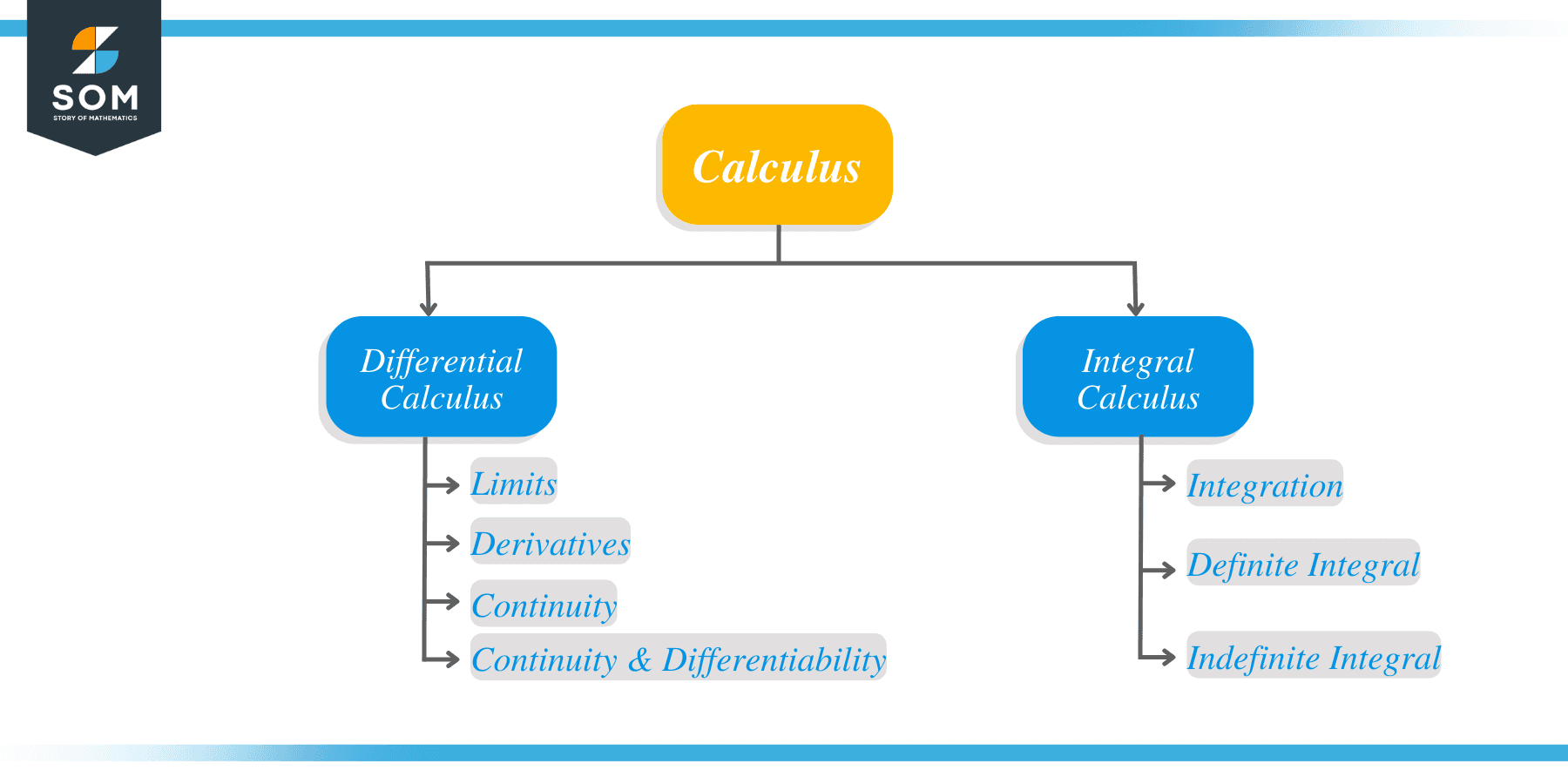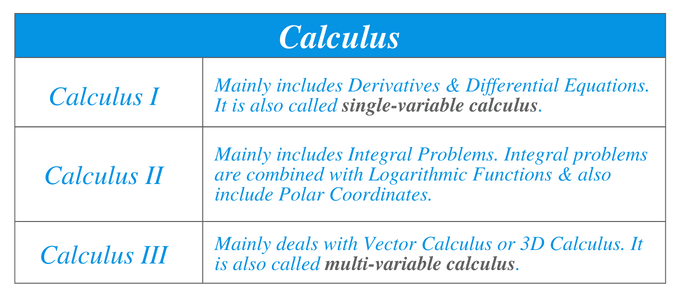JUMP TO TOPIC
 Calculus is not that hard if you have a good understanding of its prerequisites, such as algebra and pre-calculus.
Calculus is not that hard if you have a good understanding of its prerequisites, such as algebra and pre-calculus.
The name calculus sends a shiver down the spine of many students. Is the subject of calculus really this hard? Basic calculus is not that hard, but if a student has a lax attitude or behavior toward mathematics during their school days, then calculus will certainly be challenging for them at the college level.
In this article, we will discuss topics covered in calculus – I and II, what makes calculus hard, and what skills you should develop to understand the subject of calculus easily.
How Hard is Calculus?
Calculus is hard, but if you develop good basic mathematical skills, then you will find it easier to solve calculus problems.
Let us now discuss what is meant by calculus and what are the reasons which make it difficult.
Why Is Calculus Hard?
The subject of calculus is hard because it requires hard work along with good analytical skills for you to be able to grasp complex concepts. Some of the reasons which make calculus hard are given below.
Good Grasp of Algebra and Pre-Calculus
Students who are weak in algebra and pre-calculus will find it very difficult to understand the concepts of calculus as calculus cover some of the topics from mid-school, and students find it hard to understand the advanced version as they are already weak in the topics which are prerequisite for calculus.
Memorization of Formulas and Rules
Students find it difficult to remember so many formulas and rules related to differentiation and integration. They get confused as sometimes a single example requires the utilization of different rules and formulas, which makes it hard for students.
Non-Linear functions
Most of the functions involved in calculus are non-linear. Integration of non-linear functions becomes tough, and on occasions, it requires critical thinking to solve complex non-linear problems, and such problems are nightmares for students.
Lengthy Problems
Integration by parts and integration involving back substitution are complex and lengthy; such problems are tricky because one minor mistake and students have to redo all the effort to solve the question again.
Three-Dimensional Problems
Calculus three-dimensional problems are complex and hard to visualize. The vector problems in the three-dimensional planes are often complex, and it is considered one of the hardest topics of calculus.
Abstract Thinking
One of the major obstacles for most students who are studying calculus is the usage of abstract thinking. As calculus involves topics from algebra and other fields, sometimes the problem requires students to think outside of the box and be analytically well-versed. It is one of the major reasons why calculus is considered hard, especially by those students who are already weak in the fundamentals of mathematics.
Calculus vs Algebra
Calculus is harder than algebra, and it can be easily seen that algebra is offered at the mid-school level while the subject is offered at the college and high school levels.
Calculus is considered advanced to algebra, and the students who are interested in pursuing a career in science, technology or engineering have to study basic and advanced levels of calculus while algebra is considered to be a prerequisite to studying the course calculus.
Calculus-II vs Calculus-I
Calculus-II is harder than calculus-I as problems in the course of calculus-I are basic level problems which are easier to solve and do not require critical thinking. Now the question arises of how hard is calculus 2? The answer is simple: very hard, as the problems in calculus-II are advanced, and they require strong critical and analytical skills to understand and solve the problems.
How Hard is Calculus 3?
Calculus-III is harder than calculus-II. Calculus-III is calculus-I, but the only difference is that calculus-III deals with three-dimensional problems such as vectors and volumes related to three-dimensional figures, which makes it way more complex and harder as compared to calculus-II and calculus-I.
How To Be Good at Calculus?
Calculus is hard, but to avoid being overwhelmed by the subject and to get better at calculus, you can follow the steps listed below:
- Improve your fundamentals of mathematics.
- Hard work, dedication and perseverance will help you improve in calculus.
- Memorize the essential formulas, rules and different tips and tricks.
- Practice daily. Do not let the work pile up; if you do your homework regularly, then you will see that with the passage of time, you will get the hang of complex topics.
- Do not resist asking questions and using the internet to clear the doubts you have regarding specific topics.
What Is Calculus?
Calculus is the branch of mathematics that deals with the study of concepts like functions, limits, differentiation, and integration.
Major Concepts
It is perceived that it can only be understood by those with good IQ levels and mathematic skills, but with a little effort and perseverance, students can secure good grades in calculus. Let us study some of the concepts of calculus that you should know before adopting or choosing calculus as your major.
Functions
Function is the concept of calculus used to show the relation between a dependent and independent variable. For example, $f(x) = y = 2x+3$ shows the relation between variable “$x$” and “$y$” where “x” is the independent variable while “$y$” is the dependent variable. Functions have different types, and it is considered one of the basic concepts of calculus. It is mostly covered in calculus-I and applied calculus.
Limits
The concept of limit is related to functions; we use limits to assign the input values for a given function. Specifically, limits are used to assign nearby values to functions because at some values, such functions will become undefined, and then we use limits to solve such functions.
For example, the function $\dfrac{x^{2}-2}{x-2}$ is undefined at $x = 2$ when the value of $x$ is equal to $2$ then the function becomes infinity which is undefined. But we can say assign the value of $x$ near to $2$, i.e., when $x$ approaches $2$.
Differentiation
The process of differentiation is used in calculus to find the derivative of a function, i.e., the rate of change of a function. Derivatives or the process of differentiation can be considered equal to operations of finding the slope of a function. The slope of a function $f(x)$ deals with the rate of change in the value of y with respect to $x$ and is denoted as $\dfrac{dy}{dx}$.
For example, the derivative of a function $3x^{2}$ will be written as $3\times 2 x = 6x$.
Integration
Integration is the concept of calculus used for integral calculation. It is also known as the process of anti-derivative as it is the opposite of differentiation. We use the integration process mainly to determine the area under the curve, and it is very useful to determine quantities like area, displacement, and volume.
For example, if you are given a horizontal line $y = 4$ with an interval $(0,3)$, then it is similar to finding the area of the rectangle with a length of $3$ and a height of $4$. The area under a curve is calculated by breaking it down into smaller areas. That’s how the process of integrations works.
Difficulty
A major question asked by students to their seniors or teachers is “Is calculus really that hard?”
In fact, students come to teachers and seniors to ask various questions like “Why is math hard? Is pre-calculus hard? Is geometry hard? Is trigonometry hard? Is algebra hard? Is vector calculus hard?” As calculus does involve basic school-level mathematics, so all of these questions become relevant.

In this section, we will discuss why calculus is considered to be hard, and we will also compare calculus difficulty to other topics in maths.
Calculus is an advanced concept of mathematics, and those students who have developed good mathematical skills during the mid-school level will not find it a daunting task to learn calculus as compared to those students who did not do well in mathematics and algebra during their school years.
There is no doubt that calculus introduces you to advance levels of mathematical problems as compared to algebra and pre-calculus, but the students with a good base knowledge of pre-calculus will not find calculus hard. Students who did not pay attention or did not work hard in developing concepts of basic algebra and pre-calculus will find calculus really hard because calculus is a mixture of some topics from pre-calculus, algebra and new advanced topics, and students get overwhelmed by such diverse information.
Calculus deals with various fields of science, technology, and economics; hence it is offered at almost every college. It is divided into two or three parts, i.e., Calculus-I, Calculus-II and Calculus-III and if you are intending to do engineering, then there is a high probability that you will cover all three courses of calculus. For other degrees, Calculus-I and/or Calculus-II would suffice.
Calculus-I includes mainly differential calculus while also dealing with basic integral problems which are easy to understand and solve. Calculus-II deals with one variable integral calculus and also introduces sequences and series. Calculus-III deals with multivariate differential and integral calculus. Calculus –III also deals with vector 3-dimensional equations, which are quite complex and difficult to solve.

Short History
Conclusion
After studying this article, you now know why calculus is considered challenging and complex by most students and what skills you should polish to improve your score in the course of calculus. If you revise algebra and pre-calculus, then it is certain that learning calculus won’t be as daunting a task as you think it might be. Let us summarize what we have learned so far.
• Calculus is the branch of mathematics that deals with limits, functions, derivatives and integrals. It is generally considered hard by most students.
• Calculus is further divided into three parts calculus – I, calculus – II, and calculus – III. It is not always the case that you have to study all of them; the inclusion of these courses depends upon the type of degree you are pursuing. For example, in general science and technology, you will not study all three courses, while in engineering, you will study all of them.
• Calculus is hard as compared to algebra and trigonometry. It is considered the hardest type of math, but most students rate statistics even harder than calculus.
Calculus is hard, but after reading this article, you know now what type of subject it is and what you should do prior to studying the course calculus to increase your chances of not only passing the subject but also securing good marks in it.
